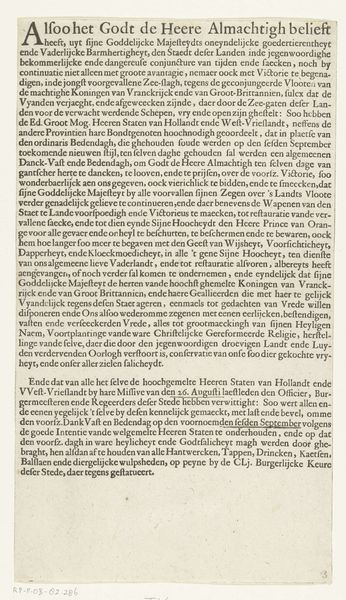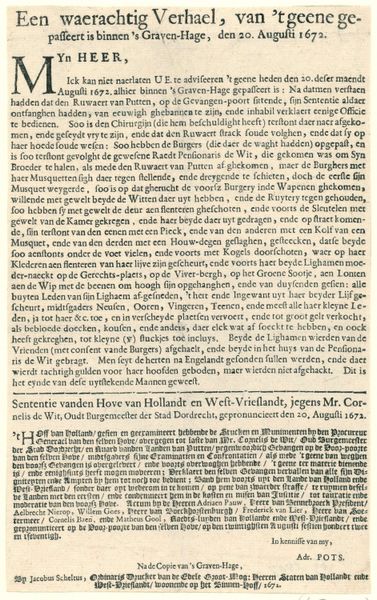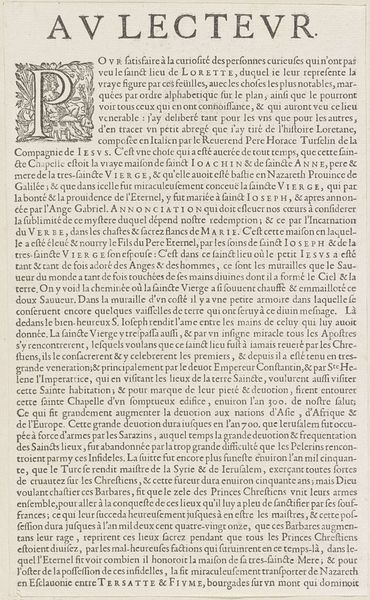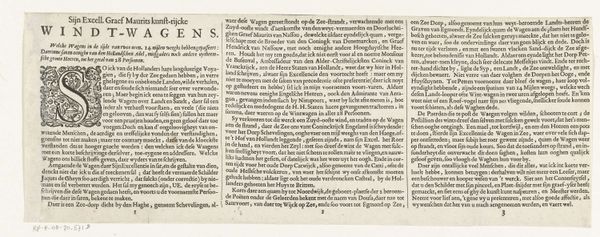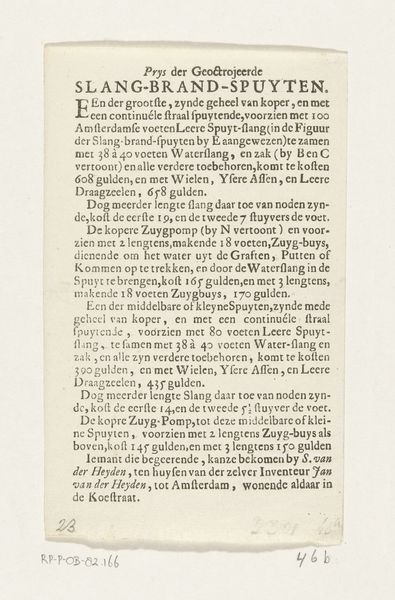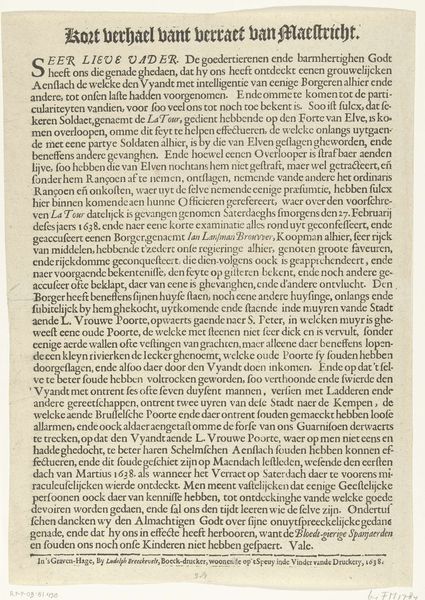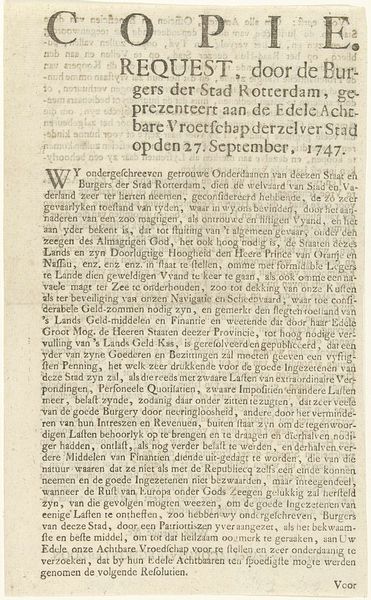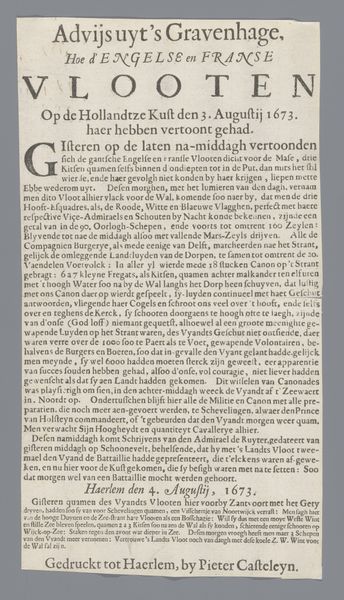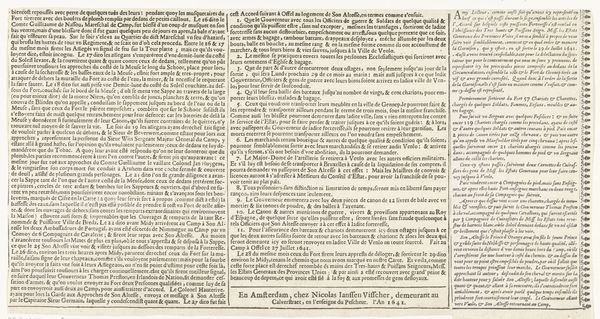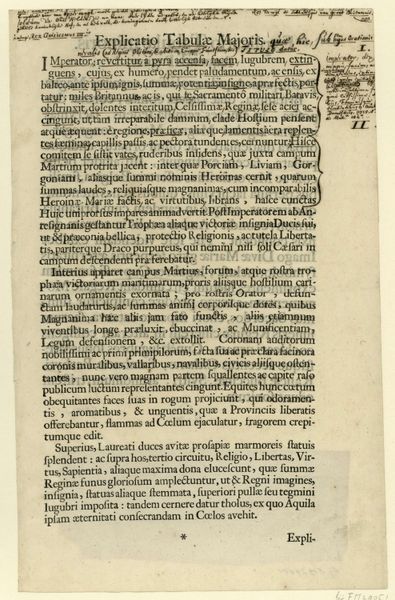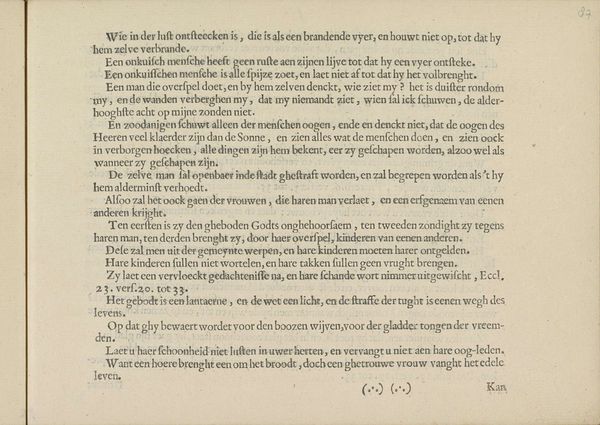
Uitschrijving door de Staten-Generaal van een dankdag voor de overwinningen in de zeeslagen van juni 1673 1673
0:00
0:00
statengeneraal
Rijksmuseum
print, textile
#
dutch-golden-age
# print
#
textile
#
history-painting
Dimensions: height 268 mm, width 140 mm
Copyright: Rijks Museum: Open Domain
Curator: Here we have a broadside—essentially a printed announcement—from 1673, titled "Uitschrijving door de Staten-Generaal van een dankdag voor de overwinningen in de zeeslagen van juni 1673." The States-General, the governing body of the Dutch Republic, ordered a day of thanksgiving for naval victories against the English and French. Editor: It looks incredibly…stark. Dense blocks of text fill the page. I feel a weight of formality, a pronouncement from on high. All I can do is see that text. It feels impenetrable, even with a translation. Curator: The typography and layout are characteristic of the Dutch Golden Age, prioritizing conveying information directly, as the ruling class exercises authority. As a textile, it's fragile now, yet it was once plastered all over town—in effect a social media post of the time. The language, with its long sentences and religious references, really emphasizes divine providence as the key to Dutch military success. Editor: What resonates with me is the deliberate construction of national identity at a critical historical point. A "day of thanksgiving" becomes a political performance, solidifying Dutch identity against its enemies, and legitimizing state power in a moment of crisis. The text specifically outlines not just prayers of thanks but behavioral dictates; shutting down businesses to concentrate hearts and minds on God. Curator: Exactly! Notice the subtle power dynamics at play. They invoke God's protection but also reinforce social order. Activities like "Tappen, Kactíen, Bal-slaen" were forbidden on this holy day, suppressing entertainment to unify people and show their support to the religious movement, not as forced conversion, but social stability. Even the closing wishes carry cultural weight. Editor: But who is it really "unifying?" It's easy to romanticize a moment of collective identity. For those outside the dominant Protestant group, this celebration was an exercise in exclusion, another demand for conformity. That line at the end speaks volumes—who does it threaten? The emphasis on the "true Christian reformed religion" underlines the era's exclusionary politics. Curator: I suppose by calling attention to it, we re-inscribe its social memory, or at least the possibility for one, as its visual rhetoric reflects the priorities of the time: power, control, but also cultural pride. Editor: Yes. Now more than ever, as an image, the announcement offers critical insight to that crucial struggle to find collective understanding and its ongoing redefinition over centuries of shared, though often unshared, historical trauma.
Comments
No comments
Be the first to comment and join the conversation on the ultimate creative platform.
